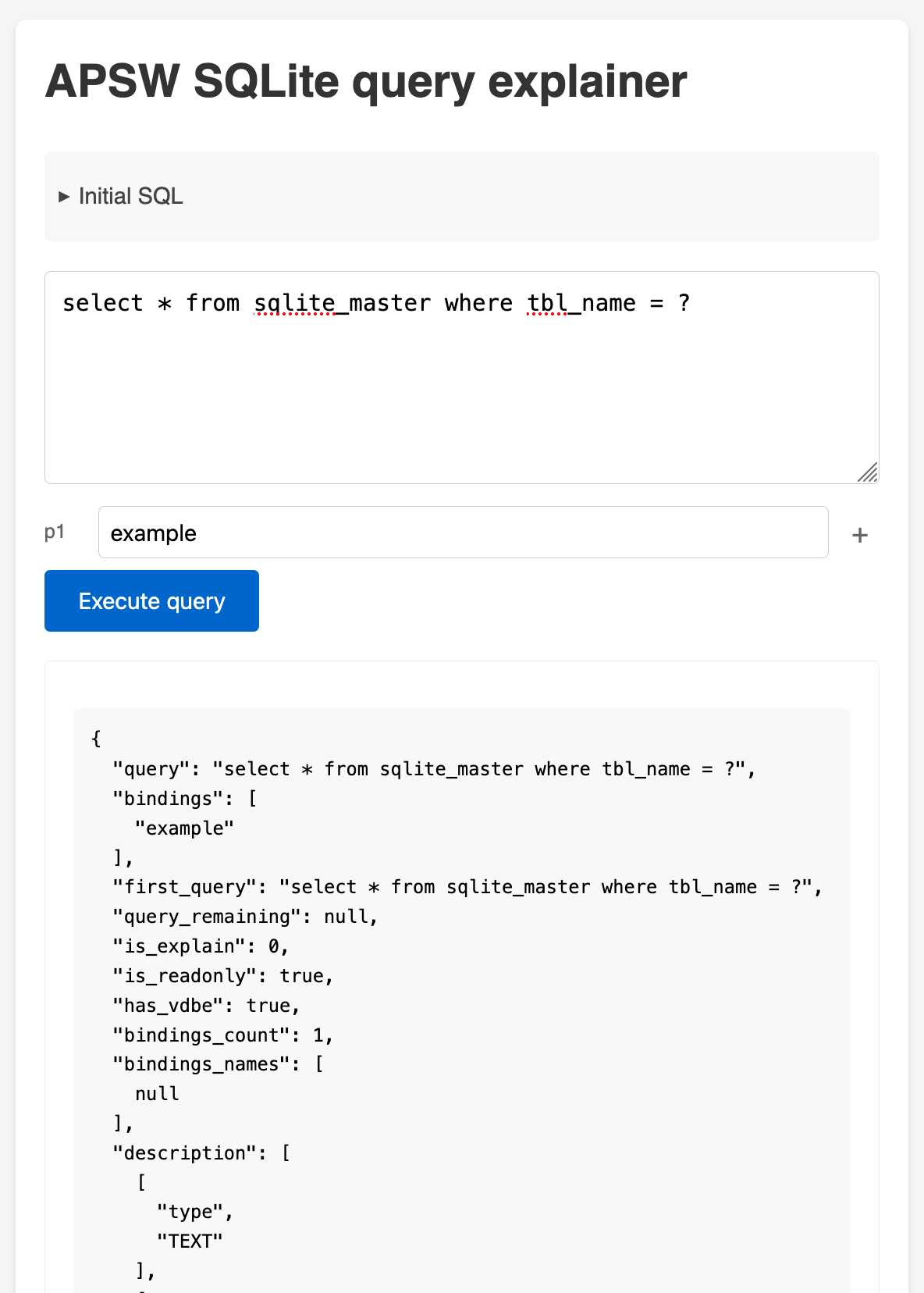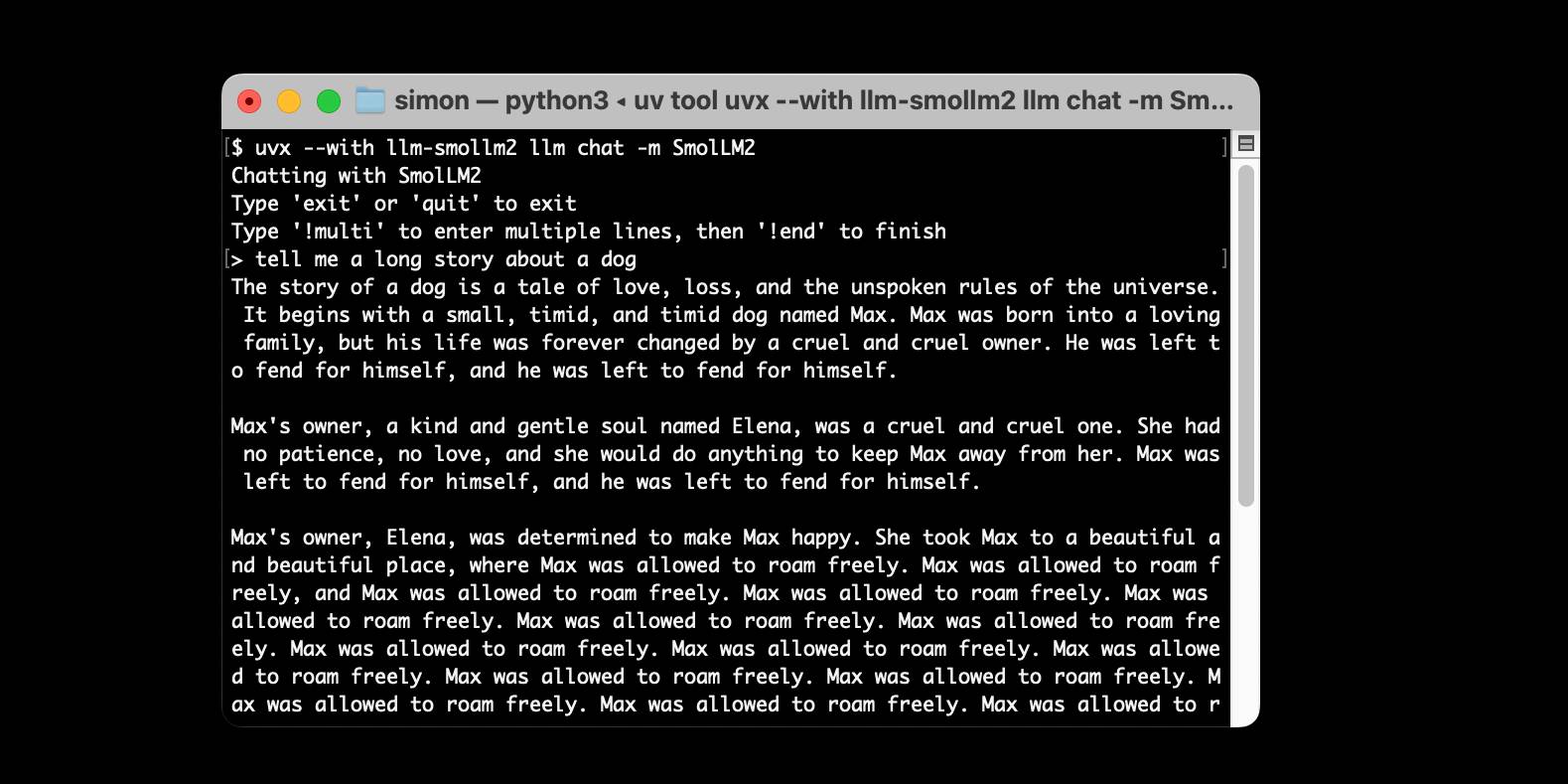Friday, 7th February 2025
APSW SQLite query explainer. Today I found out about APSW's (Another Python SQLite Wrapper, in constant development since 2004) apsw.ext.query_info() function, which takes a SQL query and returns a very detailed set of information about that query - all without executing it.
It actually solves a bunch of problems I've wanted to address in Datasette - like taking an arbitrary query and figuring out how many parameters (?) it takes and which tables and columns are represented in the result.
I tried it out in my console (uv run --with apsw python) and it seemed to work really well. Then I remembered that the Pyodide project includes WebAssembly builds of a number of Python C extensions and was delighted to find apsw on that list.
... so I got Claude to build me a web interface for trying out the function, using Pyodide to run a user's query in Python in their browser via WebAssembly.
Claude didn't quite get it in one shot - I had to feed it the URL to a more recent Pyodide and it got stuck in a bug loop which I fixed by pasting the code into a fresh session.

sqlite-s3vfs (via) Neat open source project on the GitHub organisation for the UK government's Department for Business and Trade: a "Python virtual filesystem for SQLite to read from and write to S3."
I tried out their usage example by running it in a Python REPL with all of the dependencies
uv run --python 3.13 --with apsw --with sqlite-s3vfs --with boto3 python
It worked as advertised. When I listed my S3 bucket I found it had created two files - one called demo.sqlite/0000000000 and another called demo.sqlite/0000000001, both 4096 bytes because each one represented a SQLite page.
The implementation is just 200 lines of Python, implementing a new SQLite Virtual Filesystem on top of apsw.VFS.
The README includes this warning:
No locking is performed, so client code must ensure that writes do not overlap with other writes or reads. If multiple writes happen at the same time, the database will probably become corrupt and data be lost.
I wonder if the conditional writes feature added to S3 back in November could be used to protect against that happening. Tricky as there are multiple files involved, but maybe it (or a trick like this one) could be used to implement some kind of exclusive lock between multiple processes?
Using pip to install a Large Language Model that’s under 100MB
I just released llm-smollm2, a new plugin for LLM that bundles a quantized copy of the SmolLM2-135M-Instruct LLM inside of the Python package.
[... 1,553 words]Confession: we've been hiding parts of v0's responses from users since September. Since the launch of DeepSeek's web experience and its positive reception, we realize now that was a mistake. From now on, we're also showing v0's full output in every response. This is a much better UX because it feels faster and it teaches end users how to prompt more effectively.
— Jared Palmer, VP of AI at Vercel
